HPC Preparatory
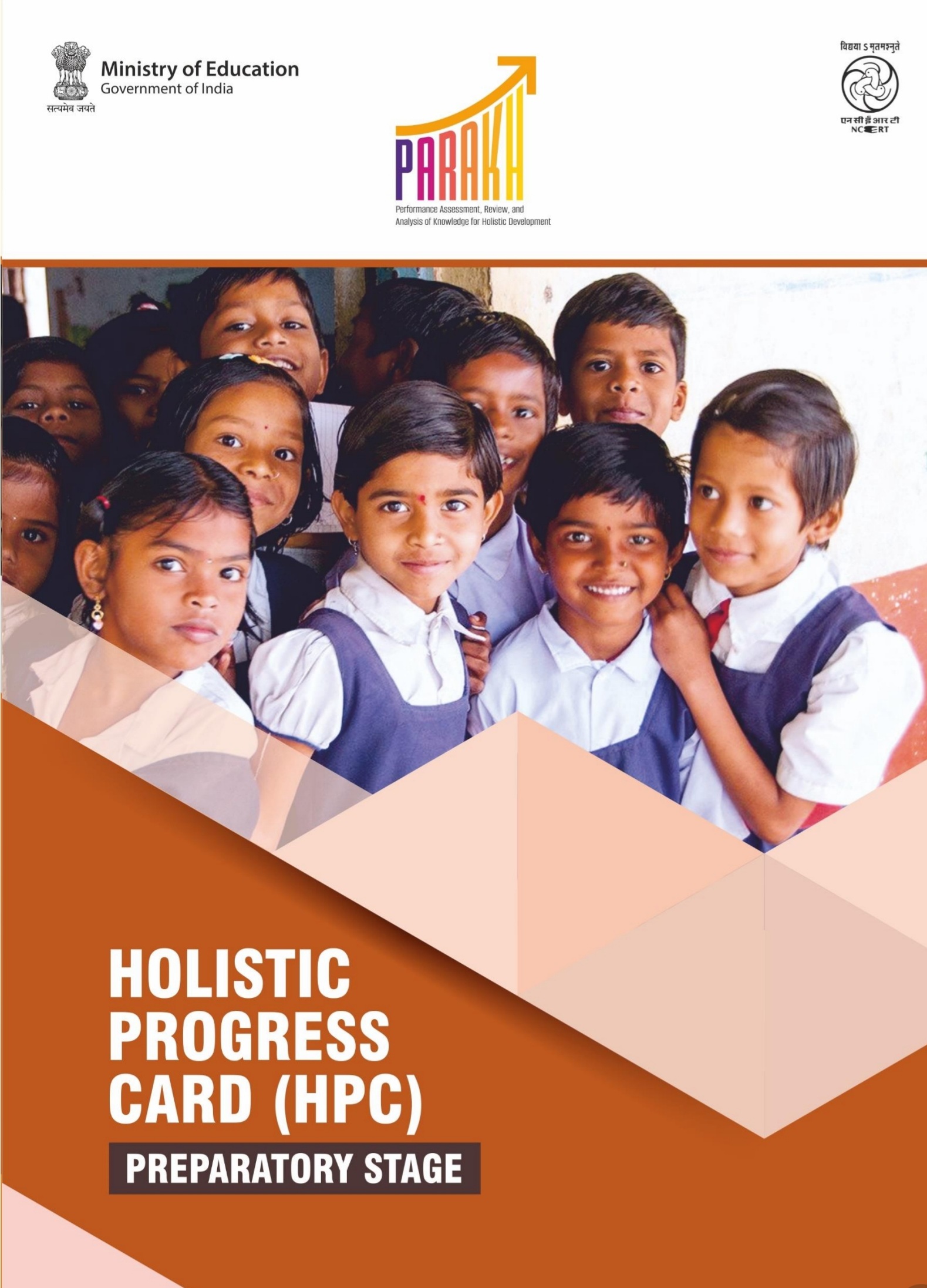
-
2025-08-25 12:00:00
-
PARAKH NCERT
- By Indrani Bhaduri
Reimagining Assessment in the Preparatory Stage: The Holistic Progress Card by PARAKH, NCERT
As children transition from play-based learning to more structured academic experiences in the Preparatory Stage (Grades III to V), assessment must evolve to reflect the full spectrum of their development—not just what they know, but how they think, explore, and grow. In response to this critical shift, PARAKH (Performance Assessment, Review, and Analysis of Knowledge for Holistic Development), NCERT introduces the Holistic Progress Card (HPC) for the Preparatory Stage, aligned with the transformative vision of the National Education Policy (NEP 2020).
The HPC is far more than a conventional report card. It is a developmental narrative that captures a child’s progress across cognitive, social, emotional, creative, and physical domains. Teachers are encouraged to observe and document each learner’s journey with care and intentionality, moving away from marks-based evaluation toward descriptive, evidence-based feedback. This approach empowers children to become more self-aware, motivated, and engaged, while also strengthening the partnership between teachers and parents. The HPC fosters a shared understanding of the child’s growth, making assessment a tool for connection, reflection, and support—rather than comparison or judgment.
A key innovation of the HPC lies in its alignment with the National Credit Framework (NCrF). This ensures that assessment in the Preparatory Stage contributes meaningfully to a unified, flexible, and inclusive education system. Based on 1000 notional learning hours per year, credit points are awarded as follows:
- Grade III: 14 credit points
- Grade IV: 18 credit points
- Grade V: 23 credit points
These figures represent 70% of the total credit points for each grade, assigned to the Holistic Progress Card. This design ensures that observation-based, developmental assessment forms a substantial part of each learner’s formal progress record from the early years, reinforcing NEP 2020’s emphasis on competency-based, learner-centered education.
For educators and academic coordinators, the HPC offers structured templates and guiding principles that support meaningful documentation and feedback. It encourages teachers to move beyond rote evaluation and embrace a more constructivist and humanistic approach, where every child’s strengths, interests, and challenges are acknowledged and nurtured. The HPC also supports inclusive practices, ensuring that children with diverse learning needs are recognized and supported through personalized observations and feedback.
For policymakers, the HPC reflects PARAKH’s commitment to systemic reform—making assessment more inclusive, equitable, and developmentally appropriate across Indian classrooms. It is a cornerstone in India’s journey toward a more dignity-driven, learner-centric education system, where progress is measured not just in scores, but in stories of growth and transformation.
Explore More
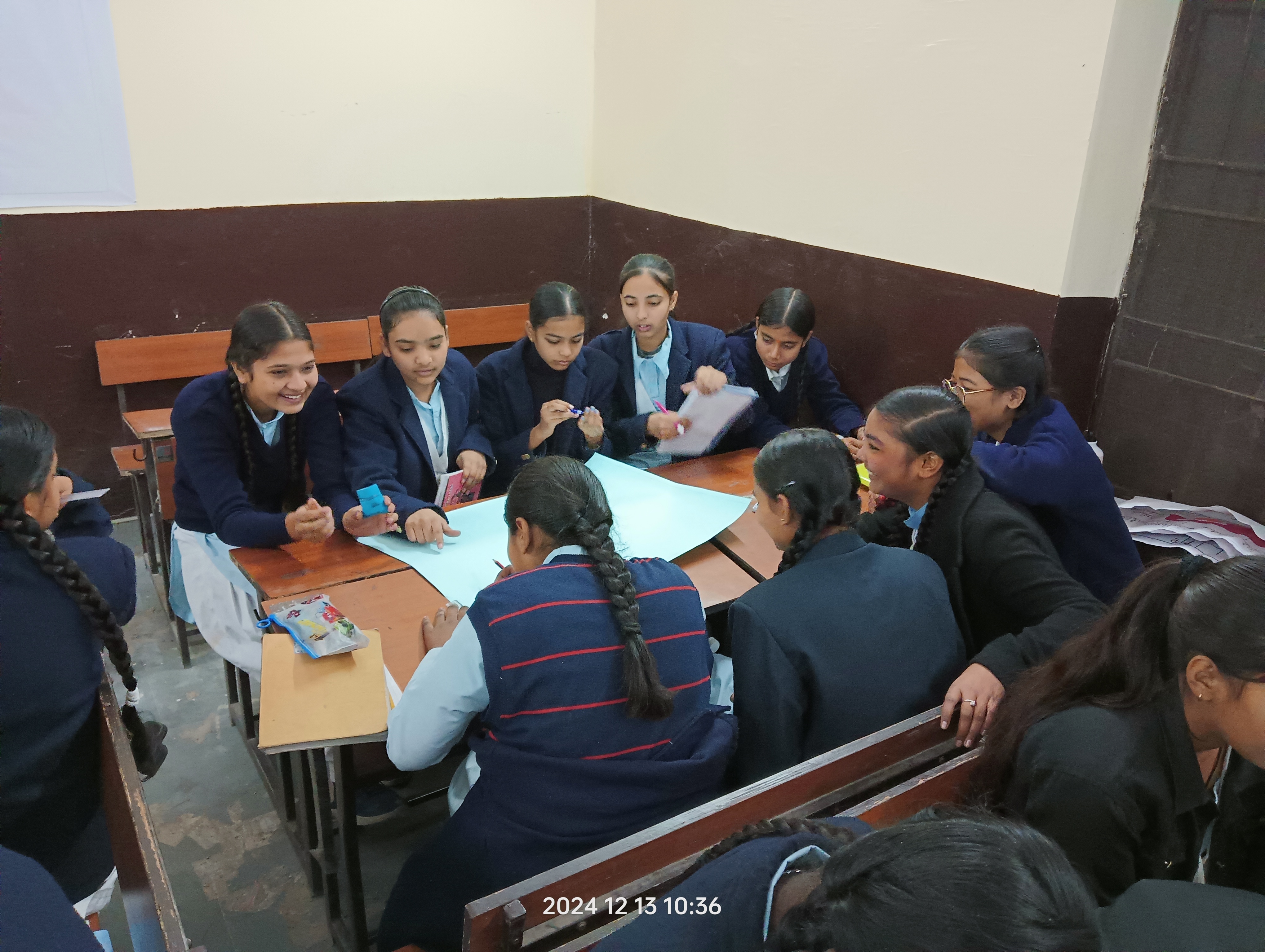
Knowledge tells students what is true. Sensitivity teaches them how to live with that truth
Parakh NCERT
- By Indrani Bhaduri
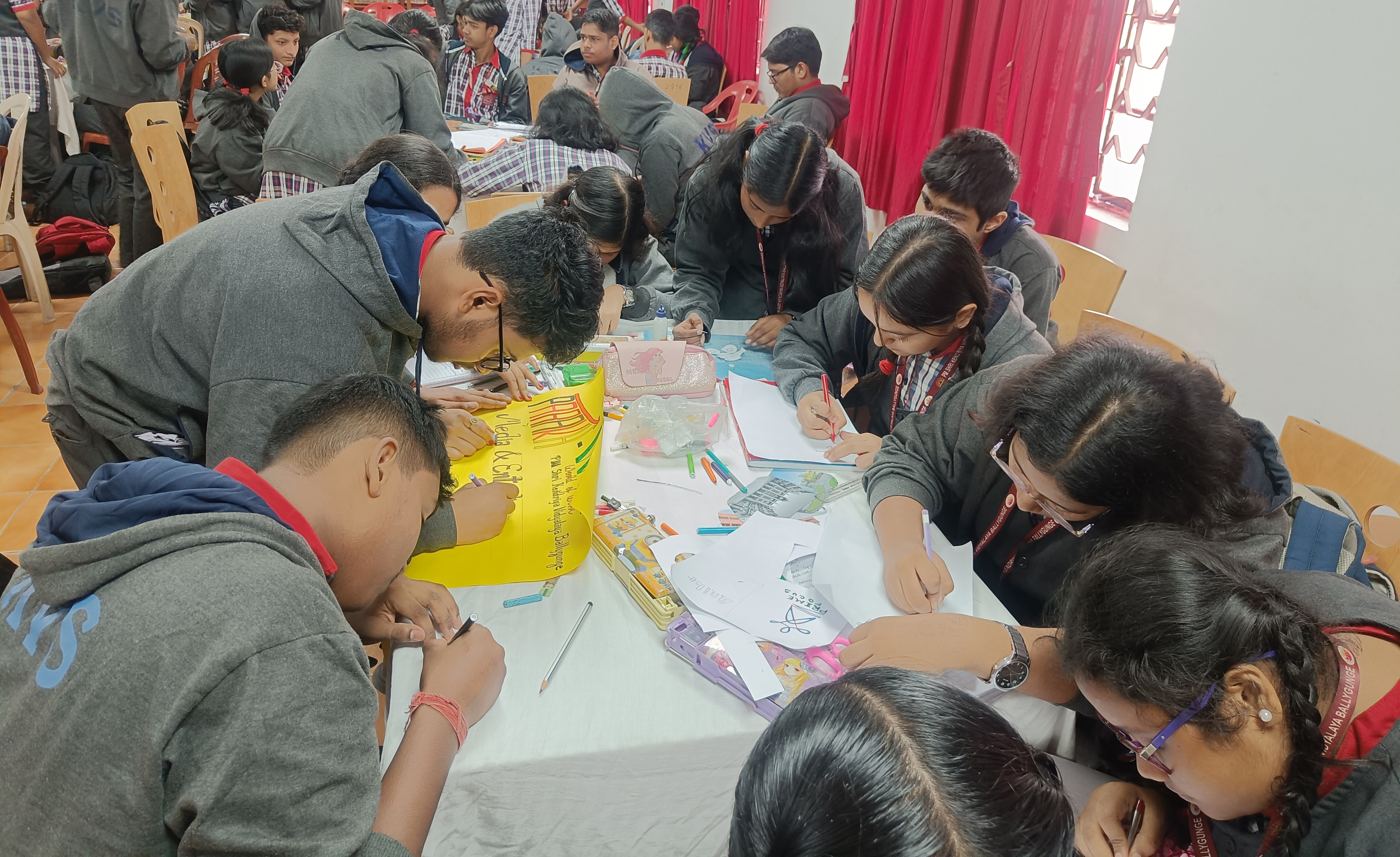
Assessing Creativity Without Killing It
Parakh NCERT
- By Indrani Bhaduri
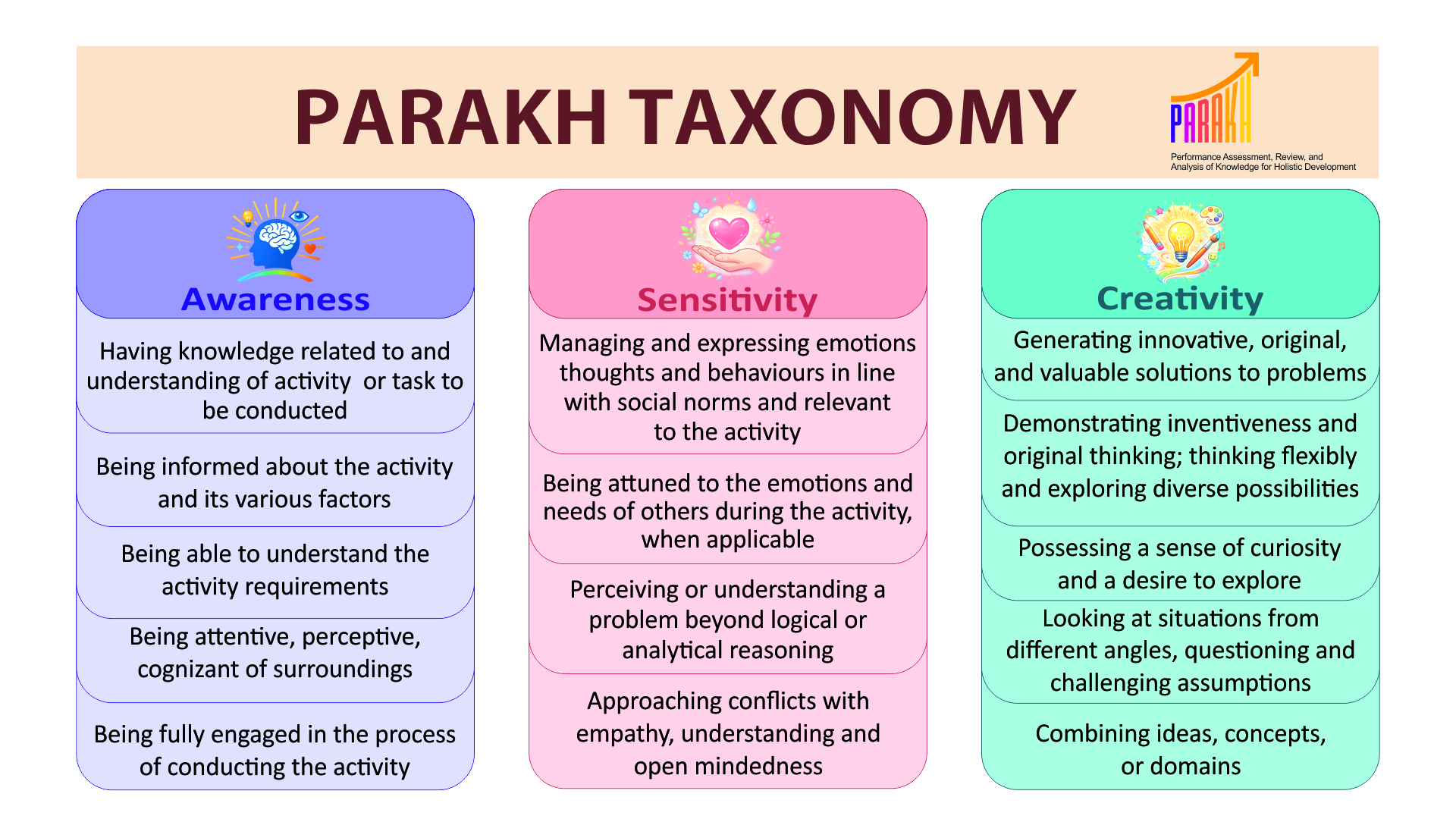
Moving Forward with Purpose: Embedding New Values in Learning and Assessment
Parakh NCERT
- By Indrani Bhaduri
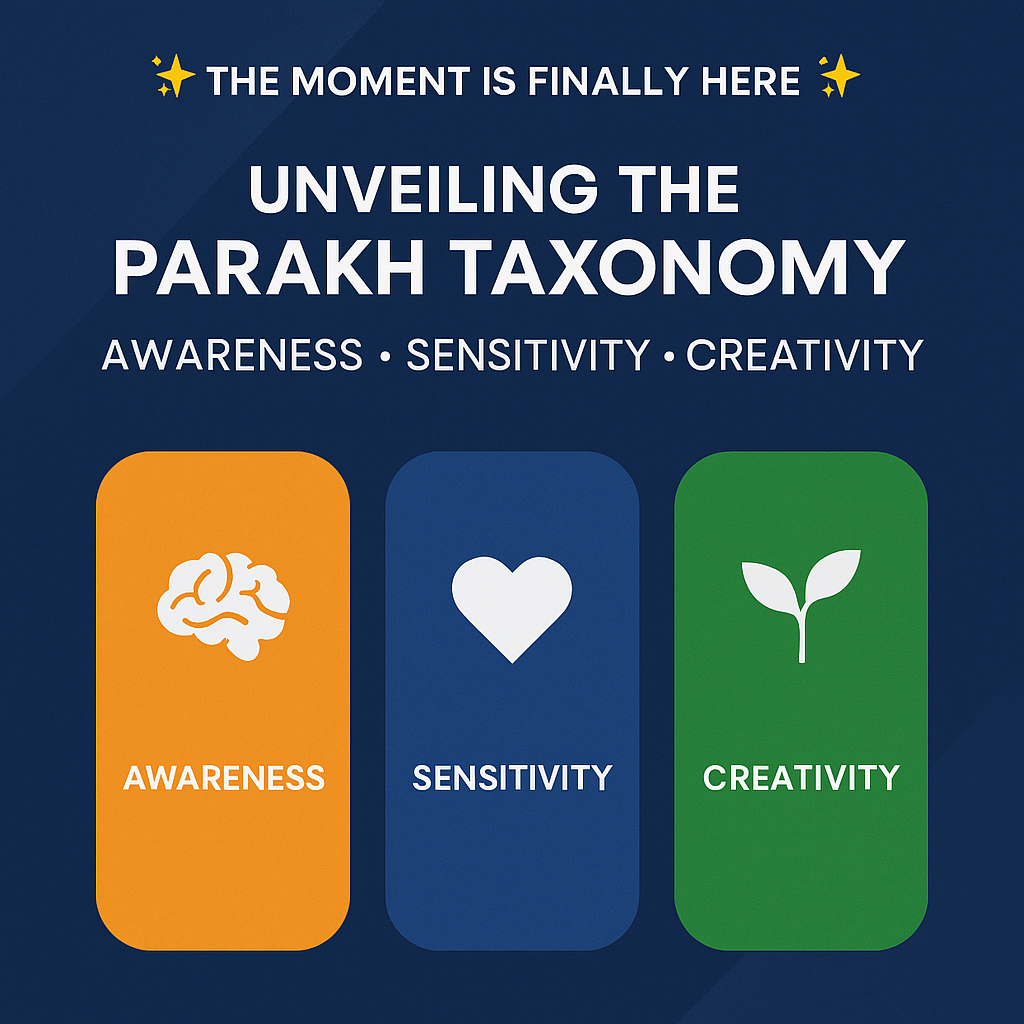
PARAKH Taxonomy
PARAKH NCERT
- By Indrani Bhaduri
 Government of India
Government of India More
More

